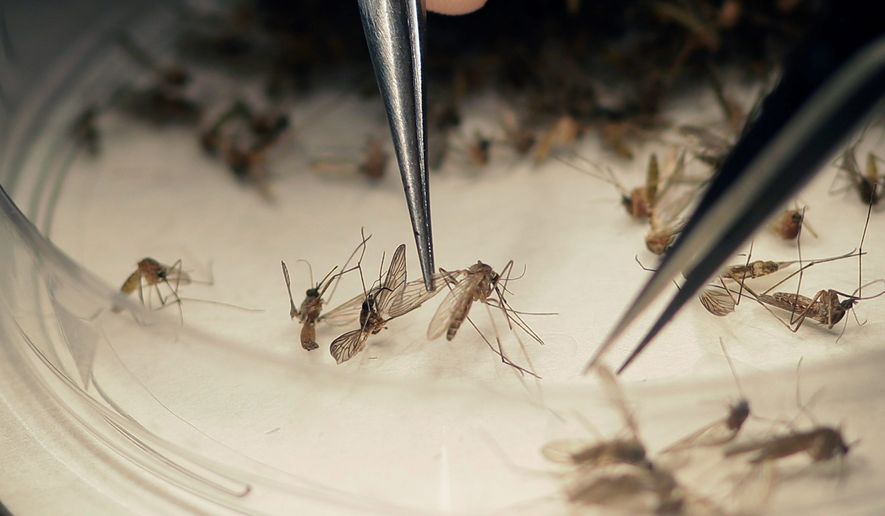Researchers in California and Brazil said a drug meant to treat and cure hepatitis C could be as effective in treating people infected with Zika, especially in protecting the fetus of an infected pregnant women.
Researchers associated with the University of California San Diego and colleagues in Brazil found that in cellular and mice trials, the anti-viral medication Sofosbuvir, brand name Sovaldi, was effective in repairing cells damaged by Zika and blocking the transmission of the virus to the fetus of a pregnant mouse.
“This suggests that one, the drug was well-tolerated by the Zika-infected pregnant mice and two, more importantly, that it was able to arrest Zika replication in vivo and stop transmission from mother to fetus,” senior author Dr. Alysson Muotri, a professor in the U.C. San Diego School of Medicine departments of Pediatrics and Cellular and Molecular Medicine, said in a statement.
Their findings were published this week in the journal Nature.
A Zika outbreak was first detected in Brazil in 2015 and was identified in the U.S. shortly after and throughout 2016. Symptoms of Zika infection are sometimes latent but can be catastrophic on a developing fetus. Pregnant women infected with Zika can have children with devastating birth defects, like microcephaly — underdeveloped heads and severe neurological disorders.
Health officials are preparing for an increase in the number of children born with these birth defects, as they further identify babies born in 2017 whose mothers were possibly infected with Zika in 2016, at the height of the outbreak in the U.S.
A vaccine against Zika is in late-stage testing and while Dr. Muotri said this is important work, treatment for those infected must also take center stage.
“There has been a lot of work done in the past year or so to address the Zika health threat. Much of it has focused on developing a vaccine, with promising early results,” she said in the statement.
“But there is also a great need to develop clinical strategies to treat Zika-infected individuals, including pregnant women for whom prevention of infection is no longer an option. They represent the greatest health crisis because a Zika infection during the first trimester confers the greatest risk of congenital microcephaly.”
• Laura Kelly can be reached at lkelly@washingtontimes.com.




Please read our comment policy before commenting.